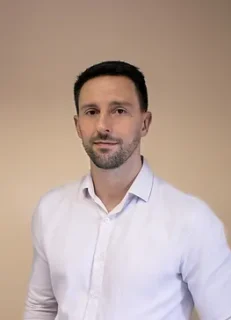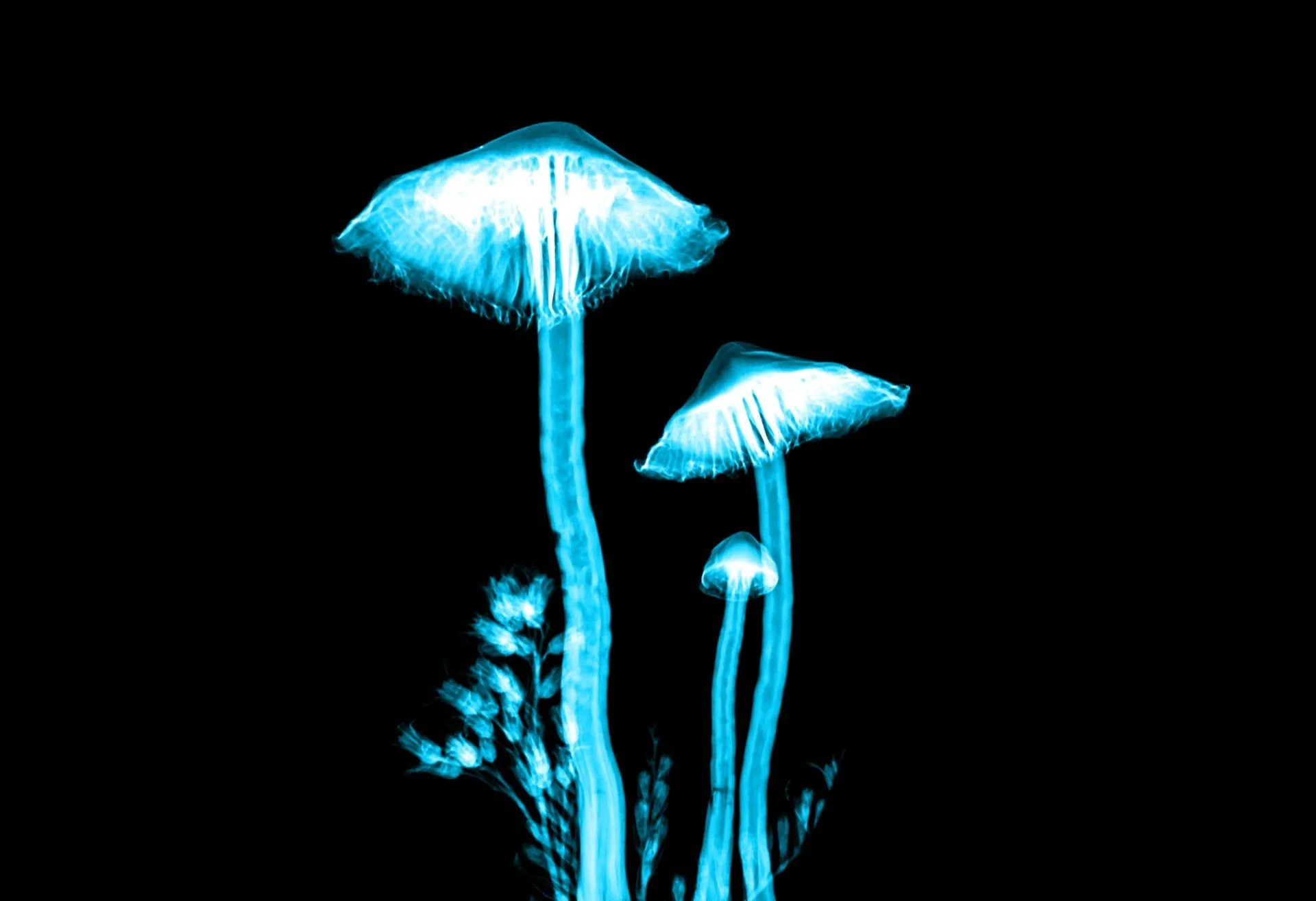In the 1960s, psychedelics made a name for themselves as the “party drug”. Folk and rock enthusiasts and musicians used it illicitly. For this reason, the medical community discarded the idea of it having any meaningful benefit. Since then, psychedelics have been controversial due to their association with the hippie counterculture. Surprisingly, now, psychedelic clinics are slowly going mainstream. Did we utterly misunderstand these potent drugs?
Mental health problems are rife, and long-term relief seems unattainable. Only, research suggests a visit to a psychedelic clinic could change this. Perhaps we can get better and stay better. To find out, we interviewed Dr. Anthony Townsend, co-founder and clinical director of Equanimity Wellness. This psychedelic-assisted therapy clinic (based in Sandton, South Africa) aims to reduce unnecessary suffering. The company combines traditional forms of therapy with evidence-based alternative medicine.
Dr. Townsend revealed the potential benefits of psychedelics and their mechanisms of action. Of course, some conventional psychotherapists still have their reservations about this development. However, Dr. Townsend was compelled by the overwhelming body of evidence that supports psychedelics as a healing modality. He shared more on this topic in our How to Live Beyond 100 bookazine.
Science and curiosity led to the establishment of Africa’s first psychedelic clinic
Dr. Townsend did not become a large proponent of psychedelics in the way most expect. It was quite the contrary to the usual channels of spirituality or recreational use. He came to this natural medicine as any good scientist or psychotherapist does. And that’s through the evidence.
Doctors need to err on the side of caution. One cannot recklessly risk people’s well-being. Therefore, evidence-based therapies are vital.
Dr. Townsend had never seriously contemplated psychedelics as a medicinal agent. That was up until he started studying at Oxford. He was introduced to the profound work done by people in treating depression using psilocybin. The results completely blew him away.
“Typically, when we give someone treatment, whether it’s therapy or medicine for depression, about 30 to 40% of people respond. Suddenly, we give people this mushroom, this fungus, and we’re seeing 84% of people respond. In healthcare, this is practically unheard of,” shares Dr Townsend.
No more “revolving door” patients?
Yes, astounding proof and curiosity spurred Dr. Townsend’s psychedelic advocacy. However, he was even more won over by its ability to curb a common frustration. Most psychologists and psychiatrists refer to this obstruction as a “revolving door”.

Dr. Anthony R. Townsend
He explained that sometimes, treating patients is a repetitive cycle. People get better initially, but then they get worse. This requires them to return to their doctors, only for the cycle to repeat. This “revolving door” phenomenon makes lasting change seem out of reach.
Essentially, most psychiatric doctors want to help people get well and stay well. So, can something else make this possible? Sure enough, Dr. Townsend found the prospect of psychedelics around the peak of this frustration. When he paired his hindrance with the data, he was interested in the potential of psychedelics to help patients.
Fortunately, psychedelics have limited the number of people who go through that revolving door. This compelled him to make these therapies more accessible in South Africa. And so he co-established a psychedelic clinic alongside Dr. Bradley Kallenbach.
This natural medicine works opposite to most meds in psychiatry
So, what exactly is a “psychedelic”? The term was coined by a psychiatrist named Dr. Humphry Osmond, in 1956. It refers to “mind manifesting”. Dr. Townsend explained that a psychedelic is any molecule that will bring forth that which hides in your unconscious mind. This includes emotions, memories, needs, and desires. Moreover, it does so in a very transparent way.
Psychedelics work with your emotions differently compared to other medications in psychiatry. Dr. Townsend discussed how typical psychiatric drugs (like SSRIs) suppress or dull down emotions. In contrast, psychedelics turn the volume up temporarily and release inhibitions. This allows you to gain insights into yourself and unleash pent-up emotions.
“So, [psychedelics are] rather intriguing because they’re encouraging people to treat their emotions differently. Instead of pathologizing and trying to get rid of them, psychedelics encourage you to make them clear to yourself. [This way], you can understand yourself better, and meet your needs in different ways. Therefore, [you can] create more lasting resolutions in your life,” imparts Dr Townsend.
Different psychedelics have different mechanisms of action
Some psychedelics are naturally occurring, while others are synthetic. On one hand, MDMA and Ketamine are synthesized and do not necessarily occur in nature. On the other hand, Ayahuasca, psilocybin, and LSD are natural. However, each psychedelic works very differently.
To illustrate, Dr. Townsend told us about the mechanisms of a psychedelic that most of us know about. Psilocybin (a.k.a. “magic mushrooms”) mimics the action of serotonin on what’s called our 5-HT2A receptors. It creates a huge surge of serotonergic activity through our brains.
Boosted serotonin levels can create the following:
- Revived memories
- Visual hallucinations
- Emotional sensitivity towards oneself or others
- Massive waves of self-compassion and empathy
- Creative and widespread divergent thinking
This influx of serotonin leads to a heightened state of neuroplasticity. In other words, it enhances your brain’s ability to change and adapt. Ultimately, psilocybin allows you to break rigid perspectives that may have limited you before. In turn, this can help your outlook and inspire you to change your behaviors.
“When you activate this, you essentially get your brain to occupy a non-ordinary state of consciousness. Essentially, this allows you to see and feel things in different ways that weren’t accessible to you normally,” explains Dr Townsend.
The success of psychedelics has everything to do with how you use it
Dr. Townsend warned of cautionary tales regarding this healing modality among the fantastic success stories. Besides, the magic of psychedelics is not only in medicine. Simply ingesting psychedelic is not enough to heal and make you feel great for the rest of your life. If this were true, everyone who was part of the rave culture in the 2000s would be a guru or Zen monk.
The reality is that these molecules can be profoundly healing when used responsibly and safely. On the flip side, misuse can create a scary and traumatizing experience. Accordingly, it’s important to create the right “set and setting” for the experience. You have to prime your mind and environment.
“[Psychedelics] reveal your unconscious mind to you. We need to remember that our minds have developed defenses for a reason. We repress certain memories and emotions for a reason. We’re not always ready to be confronted with the full significance of our childhoods, traumas, and emotions. For that reason, we must do so in a controlled way,” informs Dr Townsend.
Furthermore, you can expect a psychedelic clinic to prepare your mind and body thoroughly for the journey. It’s a holistic and integrated approach, where someone experienced and knowledgeable will hold a safe space for you. This way, you can leave the experience feeling significantly better than before you started.
Grab the latest issue of Longevity Magazine
 Are you interested in learning more about psychedelics and how they can help you?
Are you interested in learning more about psychedelics and how they can help you?
Access a digital copy of our How to Live Beyond 100 bookazine via Zinio. Alternatively, readers living in South Africa may purchase a hard copy from select retail stores.
Watch The Interview



![women [longevity live]](https://longevitylive.com/wp-content/uploads/2020/01/photo-of-women-walking-down-the-street-1116984-100x100.jpg)










